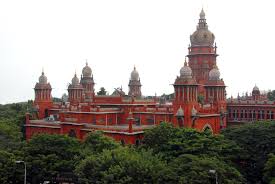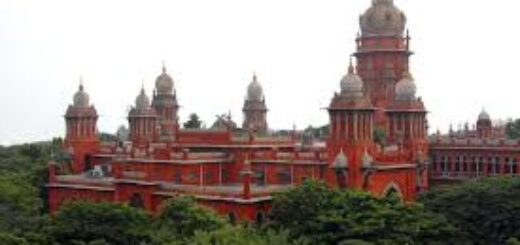The Madras High Court states that there is no complete regulation for charitable endowments for Christians and suggests that a statutory board is necessary to oversee their management.

The Madras High Court has observed that while charitable endowments for Hindus and Muslims are regulated by law, there is no similar regulation for Christian endowments. The court stated that to enhance accountability within the Church, a Statutory Board should be established to oversee its administration. Justice N. Satish Kumar noted, “Churches possess significant properties and educational institutions. However, the elected leaders, who are meant to protect these institutions, often fail to do so, leading to administrative and financial issues as funds are mismanaged in power struggles.”
The petitioner was represented by M/S. H. Thayumanasamy, while AGP M. Sarangan represented the respondents. The High Court was reviewing a petition that challenged the Bishop-Chairman’s decision to halt the petitioner’s appointment as Secretary-Correspondent of Scott Christian College (Autonomous) in Nagercoil. Another petition requested that the Director of Collegiate Education in Chennai and the Regional Joint Director in Tirunelveli consider the petitioner’s request for a direct payment system for employee salaries. The respondent argued that the Bishop has the authority to direct any Council, Board, or Church meeting to address specific issues, and can call a special meeting if needed. According to Part II Rule (XI) of the Constitution, the Bishop has paused the Executive Committee’s decision to appoint the petitioner as Secretary, which he is permitted to do under this rule.
The Petitioner argued that action is only allowed under Part II Rule (XI) of the Constitution when the Executive Committee’s resolution goes against the Constitution and practices of the Diocese. They also claimed that the stay power under the Rule was misused and driven by ulterior motives. The Bench acknowledged that the petitioner was elected as Secretary of the C.S.I. Kanyakumari Diocese and was chosen by the Executive Committee as a Correspondent for Scott Christian College (Autonomous) in Nagercoil. The Bishop sought to stay his appointment due to complaints from Assistant Professors about his failure to forward their applications while he was Secretary, along with other claims regarding unauthorized building construction. Both parties agreed that the Diocesan Council is the highest decision-making body.
The Bench rejected the petitioner’s argument that the Diocesan Council could only make decisions at the next annual meeting because the Executive Committee chose not to call a special meeting. Citing Section 63.4 (G) (b) of the Constitution, the Bench stated that if the Committee’s actions violate the Diocese’s Constitution, the Bishop can stay that decision and present it to the higher body at the next meeting. Thus, it is incorrect to say that the Diocesan Council can only meet annually or at the Executive Committee’s request. The Bench also instructed the Bishop to convene a Diocesan Council meeting within two months.
The Court has extended the stay granted on August 2, 2024, regarding the Bishop’s self-appointment as Correspondent in-charge until further notice. The interim order from August 28, 2024, is also extended until further notice. The Diocesan Council is required to resolve the matter within two months. The Court noted several cases of mismanagement and misuse of Church properties and funds. It pointed out that while Hindu and Muslim charitable endowments are regulated by law, there is no such regulation for Christian endowments. Therefore, the only oversight for these institutions comes from lawsuits under Section 92 of the Code of Civil Procedure.
The Bench explained that Trusts, trustees, charities, and religious institutions are included in List III (Concurrent List) of Schedule VII of the Indian Constitution. It stated that without Central legislation, there is no restriction for the Union or State Governments to create laws addressing these issues. To enhance accountability, a Statutory Board should be established to oversee administration, and both sides’ Senior Counsel agreed on this point. The matter is scheduled for November 18, 2024, and the Bench has included the Union of India, represented by the Secretary of the Ministry of Home Affairs, and the State of Tamil Nadu, represented by the Chief Secretary, as parties in both Writ Petitions. They are directed to submit reports outlining their positions on the matter.
Cause Title: S.Byju Nizeth Paaul v. The Director of Collegiate Education [Case No.- W.P(MD)Nos.17949 & 18256 of 2024]
Appearance:
Petitioner: M/S. H.Thayumanasamy
Respondent: AGP M. Sarangan, Advocate Mohammed Athiff, M/S.F. Deepak, Advocate Dilip Kumar, M/S.S.Bharathi Rajan









